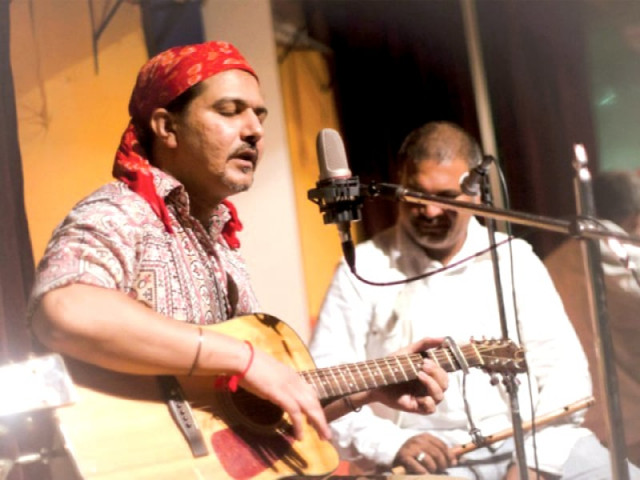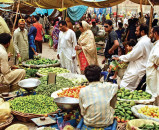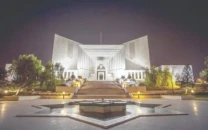Mislabelled: Demystifying the Sufi musician stereotype
Arieb Azhar feels the description pigeonholes diverse music in a single genre.

Azhar croons his heart out in an attempt to find meaning and beauty, not to pass of as another faux Sufi singer. PHOTO: FILE
What do Atif Aslam, Ali Azmat, Jawad Ahmad and Abida Parveen have in common? Yes, all four have sung Sufi poetry, but are they all in the same league? Is the only qualification of a Sufi musician his willingness to render mystic poetry?
Singer-songwriter Arieb Azhar offered valuable insight during a recent interview with The Express Tribune. According to Azhar, who has been touted as a Sufi musician ever since his rendition of “Husn-e-Haqiqi” on Coke Studio, the genre can imply anything, and thus, should not exist.
He added that the message of the Sufi poets touches the heart and is completely logical when it breaks down imposing meta-narratives such as religion, which is why it is relevant to the country, as Bulleh Shah said “Aashiq Hoeyo Rab, Malamat Lakh”.
“I think we would be better off if we didn’t have this concept of Sufism. By placing exaggerated emphasis on the outward appearance of something, you forget what it’s actually worth. The same dilemma has befallen Islam and I think, Sufism also,” he said.
Azhar complained that the label has been detrimental, as those who haven’t heard his band live refer to it as “Sufi music.” “I still don’t know where I stand, I’m in search of my own meaning in life and I’m expressing it the way I see things. I don’t want to compose adaptations of Sufi poetry only and I haven’t, but that’s what I’m known for. I compose that poetry because it speaks to me.” Among his many eclectic musical influences, he listed Victor Jara, Christy Moore, Bob Marley, Fela Kuti, Pink Floyd and Leonard Cohen.
He added that despite immense musical talent in the country, it was ironic that musicians can subsist here, given the state of affairs. However, he lamented the dearth of meaningful content. “Everything seems pretty nicely produced but what is it saying? We need to keep making music we believe in. Do we have nothing to say through our art and music?”
The reason, he elaborated, is that people have much to say but they do not have appropriate forums for expression. With the ban on YouTube, musicians cannot rely on Vimeo, SoundCloud or Dailymotion alone which have a limited scope.
Discussing stumbling blocks for musicians, Azhar pointed out the lack of avenues in the country for regular performances. The scenario has worsened along with the security situation. There are no more major concerts; organisers are scared at the prospect of organising musical events and even corporate functions. Playing it safe, corporate sponsors now prefer investing in theatre and television, he observed.
“Every other musician I know is finding it difficult to find sponsorship, whether it’s an album, a concert or a tour. A demerit of the Coke Studio phenomenon is that despite being hugely successful at bringing together many of our folk musicians and upping the ante as far as composing and recording were concerned, it monopolises the music industry which is certainly unhealthy,” he said. Consequently, other companies which used to invest in music are now reluctant to do so.
Referring to the dearth of musical events, he shared, “I try to create my own space. There was a time I used to take my guitar everywhere. I’ve cut down on that, but you have to create your own space,” he added.
Advising newer players in the field on essentials, he said, “What artists can do is not fall victim to the idea that you have to conform to a certain kind of music. Instead, their music should say something.” He added that, “Although I’m making original content, the progress is not ideal. I need to keep myself focused and committed.”
The government, he suggested, should create some venues and a system which does not tax music and artistic activity in order to promote the arts. He pointed to such existing models in India and Iran.
“Our problem lies in the fact that our government and political representatives are still not sure as to what our culture is. Standing on shaky ground themselves, they come across as apologists and are scared to admit that our culture is multi-national, multi-religious and multi-lingual,” he added.
Published in The Express Tribune, January 5th, 2014.



















COMMENTS
Comments are moderated and generally will be posted if they are on-topic and not abusive.
For more information, please see our Comments FAQ